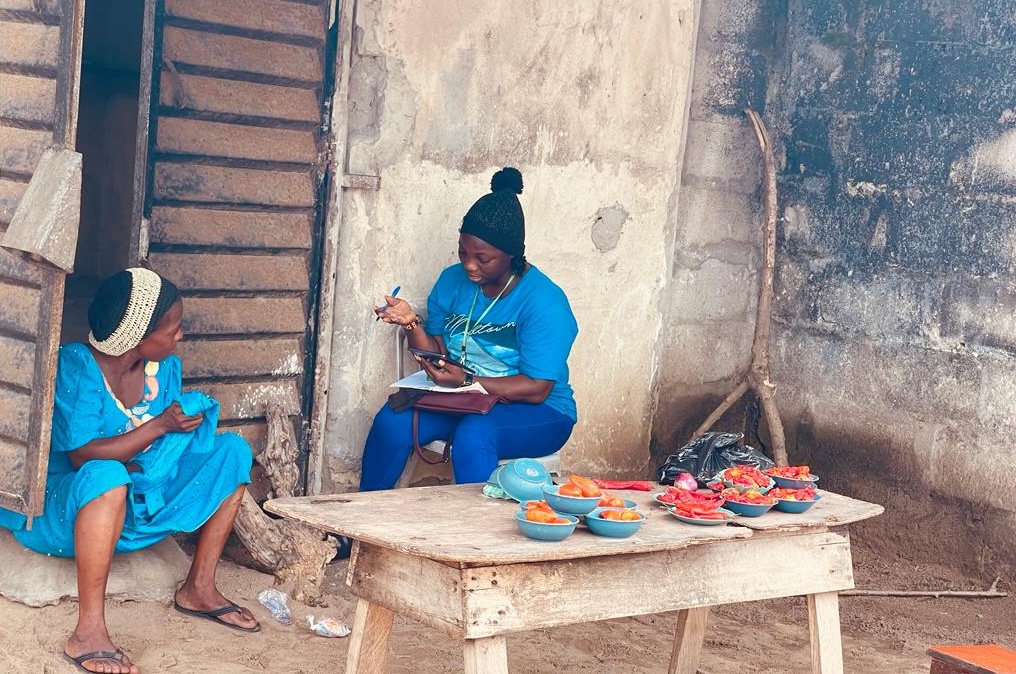Our Story
“EFInA launched the Access to Financial Services in Nigeria survey in 2008. Subsequent surveys were undertaken in 2010, 2012, 2014, 2016, 2018, 2020 and 2023. The EFInA Access to Financial Services in Nigeria survey also known as the A2F Survey is nationwide and covers over 20,000 consumers. All datasets are free and can be accessed on the A2F website.
The A2F Survey, which stands for “Access to Financial Services,” is a nationally representative survey conducted in Nigeria. It assesses the access to and use of financial services by Nigerian adults aged 18 and above across all 36 states and the Federal Capital Territory (FCT) of Abuja.
EFInA initiated the A2F Survey in 2008 when financial inclusion was relatively unknown in Nigeria, even among bankers and regulators.
The survey was launched because, prior to 2008, there was no credible or reliable data available on the status of financial inclusion or access to formal financial services in Nigeria.
The primary purpose of the A2F Survey was to gather credible data on financial inclusion in Nigeria. This data helps to identify opportunities for policy reform and market opportunities for financial service providers.
EFInA has conducted a total of seven A2F Surveys, taking place in 2008, 2010, 2012, 2014, 2016, 2018, and 2020.
The sample size has varied over the years. For example, the 2020 survey sampled 27,703 adults and included a booster sample of 1,417 15-17-year-olds.
The A2F Survey provides credible data that is essential for understanding the landscape of financial inclusion in Nigeria. It highlights opportunities for policy reform and market opportunities for financial service providers.
The A2F Survey provides information about how Nigerians access and use financial services. It also offers insights into national trends in financial inclusion, financial health, the impact of events like Covid-19, Naira re-design, customer trust in financial institutions, and the adoption of digital financial services.
The survey assesses all Nigerians’ access to and use of financial services, describes the access landscape, and identifies opportunities to promote financial inclusion in the country. It covers various aspects, including financial health, customer trust in financial institutions, and digital financial services.
The A2F Survey is universally recognized by financial sector stakeholders in Nigeria. It serves as an established and leading source of information on national trends in financial inclusion, aiding industry professionals and policymakers in making informed decisions.
Since the inception of the A2F Survey in 2008, the financial exclusion rate in Nigeria has decreased from 53% to 36% in 2020. This indicates progress in enhancing financial inclusion in the country.
The A2F Survey supports the achievement of multiple SDGs, including No Poverty, Decent Work and Economic Growth, and Gender Equality. It acts as an enabler for eight of the 17 SDGs by promoting financial sector deepening and economic growth.
In addition to financial aspects, the A2F Survey captures data on demographic profiles of Nigerian adults, access to infrastructure and technology, means of identification, population characteristics, poverty probability index, and socio-economic indicators related to the Sustainable Development Goals.
The A2F Survey plays a vital role in advancing gender equality by addressing gender-focused questions, household gender dynamics, monetary decision-making, and providing insights into the control and ownership of assets among women.
The A2F Survey employs a human-centered design approach to ensure that it captures data relevant to the needs and realities of the people it aims to serve. This approach enhances its effectiveness in promoting financial inclusion.
The survey assists in market segmentation by identifying the untapped potential within the underserved women’s market, potentially unlocking USD$760 million in annual banking revenue.
You can access the findings and reports of the A2F Survey through the website at www.a2f.ng
If you have any more questions about the A2F Survey or need further information, please don’t hesitate to reach out to EFInA for assistance.
Themes covered in the A2F survey
The A2F survey captures rich data on how Nigerians manage their finances. It also captures non-financial data that is relevant across a range of development programming.


Access to financial services
- Access to formal financial services
- Access to informal financial services
- Levels of financial exclusion
Population characteristics
- Demographics of Nigeria Adults
- Access to infrastructure
- Access to Technology
- Means of Identification
Use of financial services
- Savings, credit & remittances
- Insurances & Pensions
- Risk & Insurance Management
- Use of Digital Financial Services
SDG Indicators
- Poverty Probabolity Index
- Social Economic Indicators of the sustainable development goals.
Quality of Financial Services
- Trust in Financial Service Providers
- Quality of services provided
- Dispute Resolution
Gender Focused Questions
- Asset Ownership & Control
- Household Gender Dynamics
- Monetary Decision Making
Beyond Financial Inclusion
- Financial Needs
- Financial Health
- Financial Capability
- Financial Empowerment
The Human Account
- Human-Centered Design
- Profiles
- Market Segmentation


